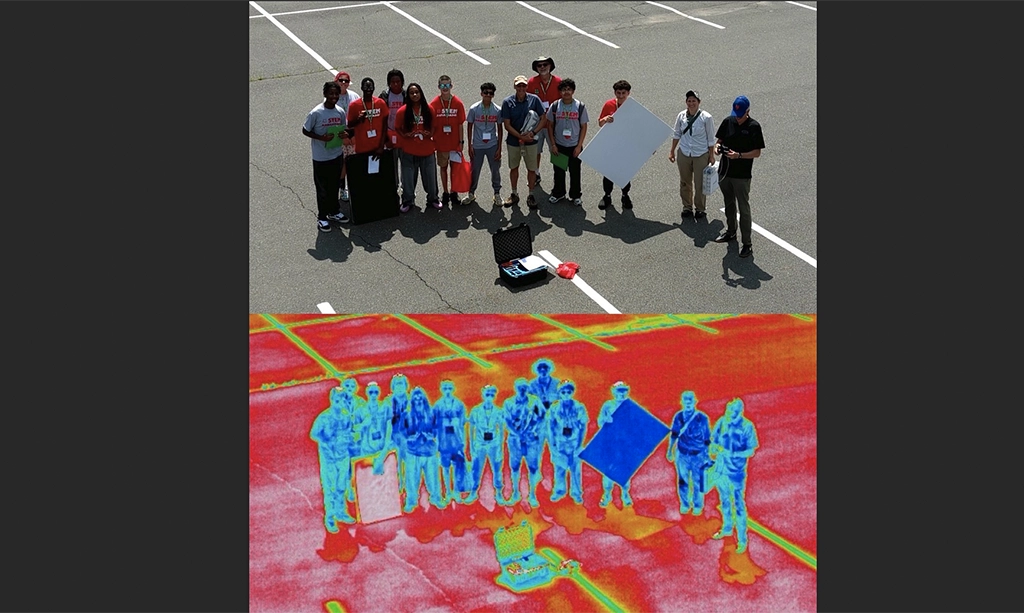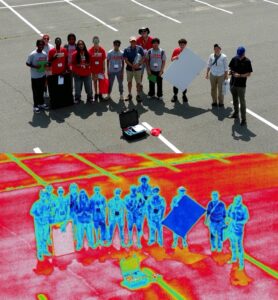July 9, 2025 — New Brunswick, NJ
This summer, a group of motivated middle school students from across New Jersey got a hands-on introduction to cutting-edge science through the Rutgers 4-H STEM Ambassador Program. Led by Hugh Roarty, Rick Lathrop, and Jessica Stitt, the students explored topics ranging from remote sensing and drone technology to the urban heat island effect and thermal measurements.
The 4-H STEM Ambassador Program, part of Rutgers Cooperative Extension, is designed to empower youth from underrepresented communities by immersing them in real-world science and engineering challenges. By acting as “ambassadors,” the students gain knowledge to bring back to their schools and communities, inspiring their peers to pursue STEM fields.
This year’s program focused on how scientists use remote sensing to study the environment. Roarty, an expert in oceanic monitoring and remote sensing showed students how drones can capture thermal images to measure surface temperatures in urban areas. Lathrop, a professor of environmental monitoring and mapping and Postdoctoral Researcher Jessica Stitt guided students through hands-on activities to collect and analyze thermal data around the Rutgers campus.
Students used handheld infrared thermometers, drone-mounted infrared cameras and iButton temperature loggers to measure how surfaces like asphalt and grass absorb and release heat differently. They learned how this data helps researchers understand the urban heat island effect — a phenomenon where cities become significantly warmer than surrounding rural areas due to human activities and infrastructure.
“I liked how we got to use real scientific tools,” said one student participant. “I didn’t know drones could be used for environmental science like this.”
The program not only introduced students to advanced technology but also emphasized community impact. By connecting scientific research to everyday issues like extreme heat, students saw firsthand how STEM can help solve pressing problems in their own neighborhoods.
“Programs like this are about opening doors,” said Roarty. “When students see how the science applies to their world, it sparks curiosity and shows them what’s possible.”
The 4-H STEM Ambassador Program is one of Rutgers’ many efforts to build a more diverse STEM pipeline in New Jersey, preparing young people to become tomorrow’s scientists, engineers, and community leaders.


